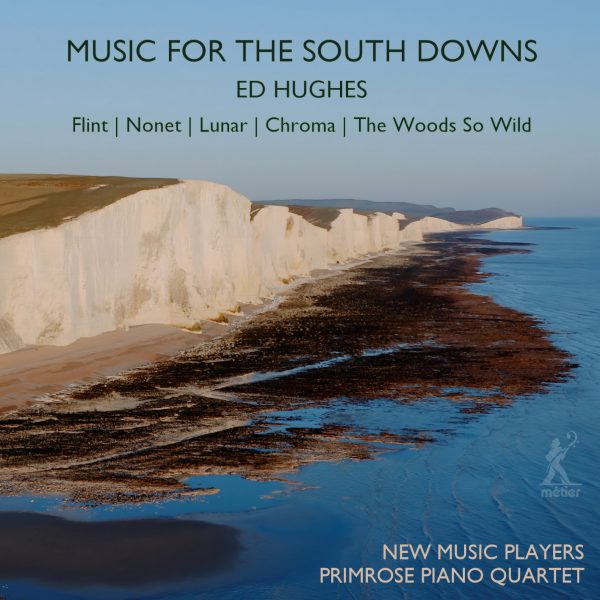Infodad
The setting is contemporary and the destination a strictly geographical one in Ed Hughes’ Music for the South Downs, an Impressionistic visit and tribute to the 260 square miles of chalk hills in England’s southeast. Hughes has created four three-movement suites about and in response to aspects of the South Downs, for varying instrumental complements. Hughes gives audiences minimal hints of his intentionality from the movement designations.
Flint simply contains “Movement 1,” “Movement 2,” and “Movement 3,” with elements ranging from strongly rhythmic dissonance to quiet that is almost lyrical. Nonet has the same movement titles (or non-titles), but additionally marks them Con moto, Tranquil, and Flowing – although, interestingly, those designations are somewhat swappable, with elements of each movement reflecting those of the other two. The third suite is called Lunar and has movements labeled “Lunar 1,” “Lunar 2” and “Chroma.” The first movement here is the most traditionally Impressionistic of any on the CD, having what is essentially the sound of moonlight. The second is considerably bouncier – elves and fairies cavorting in the moonglow, perhaps? In contrast, “Chroma,” at 10 minutes the longest movement on this entire Métier release, is more abstract and dissonant than either of the prior movements.
The final suite, The Wood So Wild, once again simply has “Movement 1,” “Movement 2,” and “Movement 3,” but its scoring for piano quartet differentiates it from the other three suites. The implicit wildness here points to the woods being unspoiled rather than wild in any other sense – there is nothing dramatic in any of the movements, all of which have a prepossessing gentleness and sense of meandering flow about them. Hughes does not really attempt to transport listeners to southeastern England in Music for the South Downs, although audiences already familiar with the area may find a number of touchstones here with which to identify. Certainly all the performers treat the music with respect and play it with care and understanding. Music for the South Downs is basically a personal tribute and response to a region with which Hughes feels a strong personal connection – pleasant enough material for those who do not know the geography, although certainly less meaningful than for those who do.
@divineartrecordingsgroup
A First Inversion Company
Registered Office:
176-178 Pontefract Road, Cudworth, Barnsley S72 8BE
+44 1226 596703
Fort Worth, TX 76110
+1.682.233.4978












